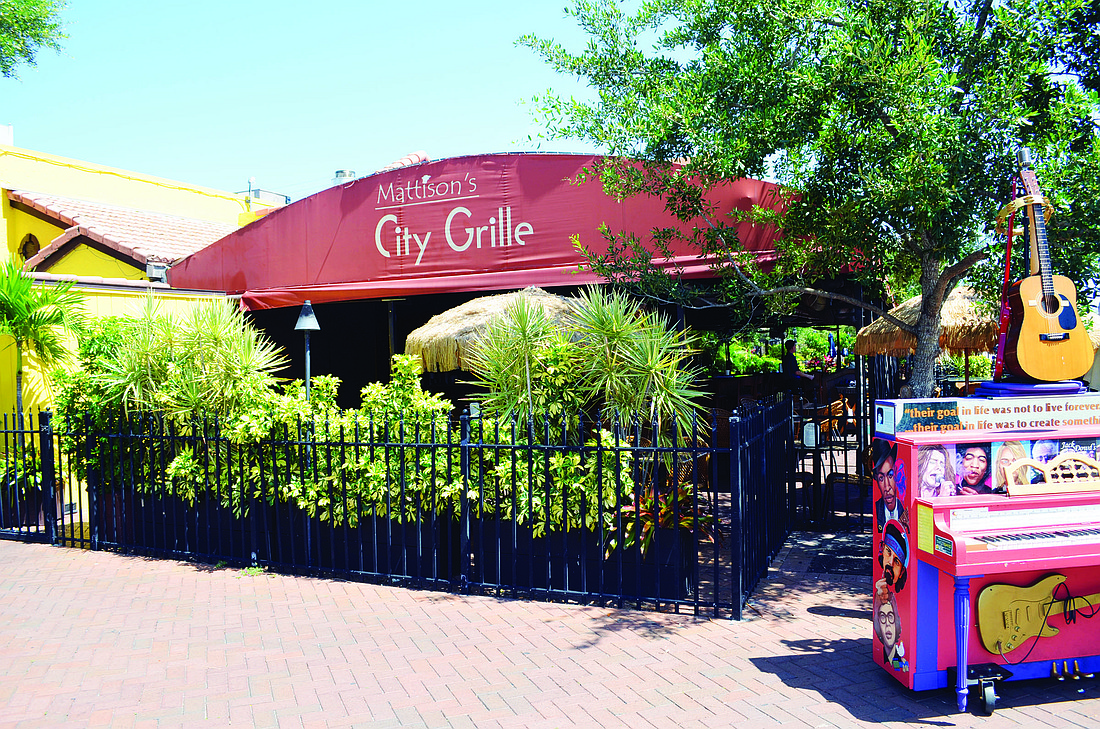- April 25, 2024
-
-
Loading

Loading

As it seeks to update its noise regulations and address concerns from downtown residents and businesses, the city of Sarasota may also have to grapple with the very nature of the mixed-use heart of the city.
During a meeting Monday, the Sarasota City Commission agreed to consider a revised noise ordinance in the fall. In the process, the group also directed staff to investigate alternative methods of addressing the often-conflicting interests of residents and businesses downtown.
The city has considered rewriting its noise ordinance since 2012. Police have called the current regulations too vague, and residents have argued the ordinance is too lenient. On Monday, City Attorney Robert Fournier presented a proposed new ordinance for consideration, streamlining the old rules and adding more severe punishments for repeat offenders.
The revised ordinance was scheduled for discussion in February, but the city tabled the conversation so complaints from citizens could be addressed. Several residents said the new regulations were still too lenient, and that changes to the hours during which amplified noise would be allowed outdoors appeared to create a more lax standard than the current ordinance.
Fournier said the revised referendum wasn’t designed to make the standards stricter or more lenient. Instead, his office had three goals: making the ordinance easier to understand and enforce, instituting increasing penalties for repeat offenders and making greater use of a “plainly audible” standard when investigating noise violations, in addition to using decibel limits.
The new ordinance would establish a cutoff on outdoor amplified noise at 11 p.m. on weekdays and 11:59 p.m. on weekends, an hour later than the current standards for every business other than Mattison’s City Grille. Although the letter of the law would change under this ordinance, Fournier said enforcement would stay the same. Because Mattison’s has a special exception to provide amplified music one hour later than the rest of the city, enforcing a different standard elsewhere would have violated other establishments’ rights to equal protection under the law. As a result, cops have enforced the later standard across the board.
Residents present at Monday’s meeting said they were more satisfied with the proposed ordinance than the February draft, but still expressed displeasure with the 75-decibel standard for noise violations and the cutoff hours for outdoor amplified music. They also said enforcement of the current regulations needed to be stricter, because violators were infrequently cited.
“Decibel limits are like speed limits,” downtown resident Dennis Adams said. “They are routinely violated.”
The commission agreed to consider the revised ordinance at a public hearing in the fall, when more residents would be present to give feedback. In the meantime, they directed the city attorney’s office to look into alternate methods for governing how downtown bars function late at night.
Regulation by use
In a discussion about how a downtown noise ordinance could be applied, City Attorney Robert Fournier said it would be possible to create zoning regulations that place conditions on uses likely to create noise issues, such as late-night liquor service. Taking this approach would allow the city to better regulate how frequent offenders operate.
However, Fournier warned that the procedure to institute a permitting process for these uses would be extensive. Fournier also said the city has the ability to impose conditions on an establishment’s conditional use permit to minimize adverse effects on neighboring properties, which could include noise mitigation requirements.
Commissioner Paul Caragiulo suggested that the issues downtown residents have with neighboring nightlife establishments couldn’t be addressed with a citywide sound ordinance. Instead, he said, commissioners had to discuss the type of environment they want to foster in the mixed-use downtown core.
“Sound is incidental to that,” Caragiulo said. “It’s about land use; it’s about planning.”
Caragiulo suggested the city hire a consultant to help guide a broader conversation about managing land uses, an idea Commissioner Suzanne Atwell embraced but which other commissioners did not support. Still, the commission unanimously agreed the conversation would have to get started soon, particularly with the number of new condominiums being built in the area.
“With the amount of residents we’re going to have downtown, we’re going to address it,” Commissioner Shannon Snyder said. “There’s no other way to get around it.”